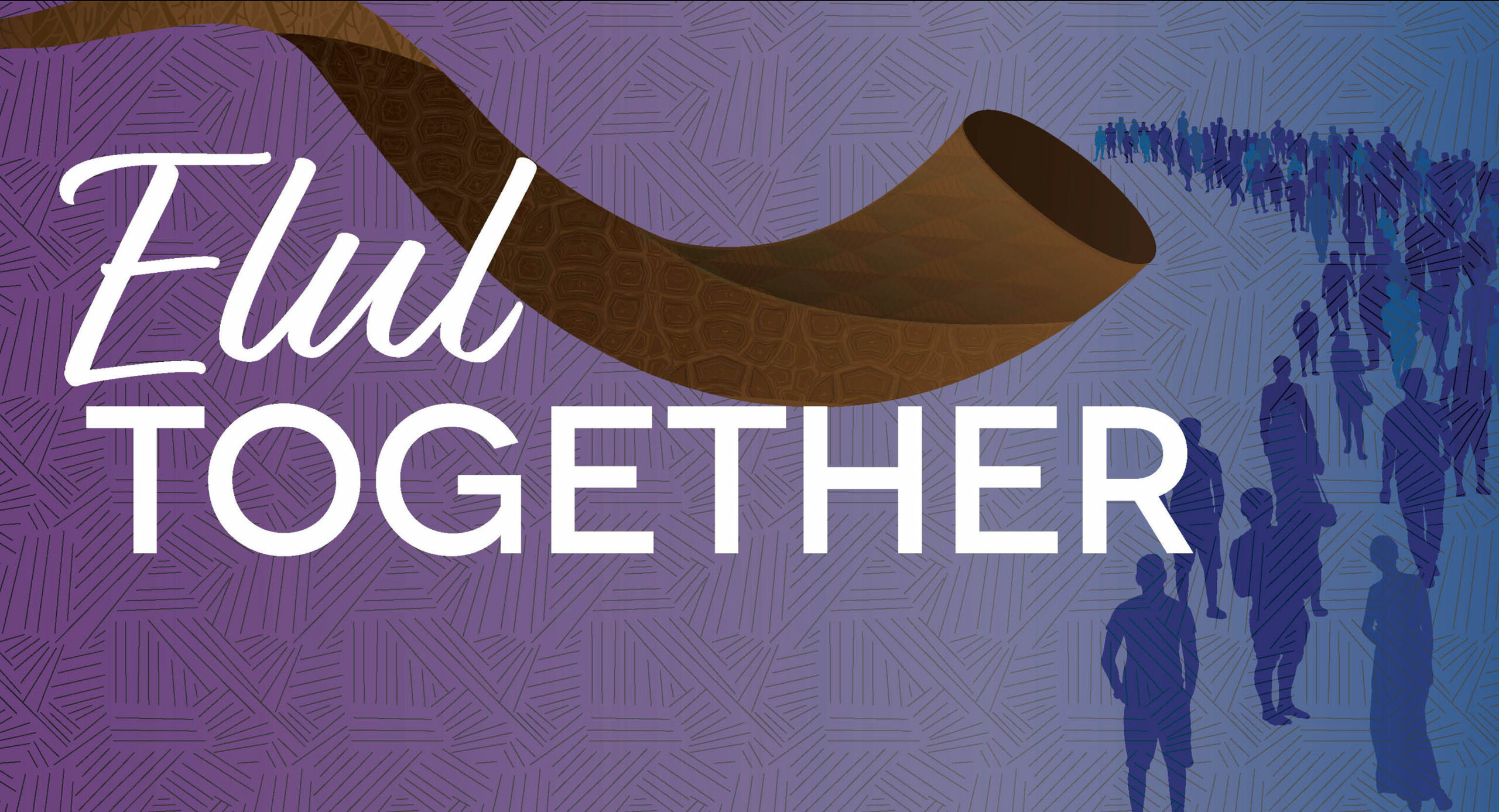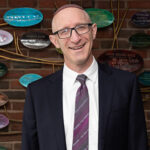Rosh Hodesh Elul:
Beginning the Journey Home

As we move through late summer into autumn, we can feel approaching what the educational theorist and activist Parker Palmer describes as a “season of steady decline.” As Palmer says, “The days become shorter and colder, the trees shed their glory, and summer’s abundance starts to decay toward winter’s death.” 1 A sense of mortality creeps into the air.
And in this moment, Jewish tradition makes the audacious choice to have our primary New Year’s celebration. This week, with the new Jewish month of Elul, we begin the preparatory process for Rosh Hashanah, Yom Kippur and the fall chagim (holidays). We mark this transition through changes in our prayer liturgy, adding Psalm 27 to our morning and evening prayers and in the Sephardi tradition by saying selichot, liturgical poems related to repentance, and blowing shofar each morning. We also begin the essential personal task of this time period, teshuvah (repentance/returning), the process of reflection on and assessment of our actions and direction in life, making amends for misdeeds, and striving to live better lives.
Teshuvah is the process of returning to the Divine — to living with and in response to the God we find within ourselves and, of course, everyone we encounter.
It is not an obvious choice to make our central holiday of renewal as we head into a “season of steady decline.” But Jewish tradition understands this context as an ideal time to reflect on how we are living. The encounter with the seasons changes evokes the limited, contingent nature of existence and can help us focus the mind and heart on these existential questions of meaning. It can help enable us to do teshuvah, the process of repentance and returning to a well lived life.
I have often taken as my starting point of teshuvah various approaches to what we call in Jewish tradition cheshbon hanefesh, accounting of the soul, trying to notice unhelpful and unhealthy behavioral patterns and seeking transformation. While this work is essential for teshuvah, this year I find myself beginning in a different place, following the insights the book Bayam Darkecha (Your Way in the Sea), a contemporary Hasidic book on spiritual practice.
Drawing on earlier and classic Jewish teachings, Bayam Darkecha proposes that the core of teshuvah is not the self-assessment elements that lead to behavioral changes. Instead, the “inner essence” of teshuvah that energizes and makes all of the actions and outcomes possible and potentially enduring is “returning to live with God.”
What is the most basic principle of Jewish tradition? In the Jerusalem Talmud, one ancient rabbi, Ben Azzai, offers the compelling answer that the building block of our tradition is that humanity is created B’Tselem Elohim (in God’s image). We are each created as unique beings, patterned on the Divine. There is something sacred, transcendent, infinitely valuable about each of us. Following Genesis 2:7, in which God creates Adam from the earth but Adam only comes alive when God breathes the “breath of life” into him, we could say that in Jewish mythic imagination, we are only truly alive because of this uniqueness that is God’s breath in us.
Teshuvah is the process of returning to the Divine — to living with and in response to the God we find within ourselves and, of course, everyone we encounter.
In Bayam Darkecha and throughout midrashic and Hasidic sources, this return is imagined as a homecoming to a loving parent. Like any parent, God “expects us to behave appropriately, but God still loves us, in every moment and situation.” Teshuvah is the reconnection to our unconditionally loving Source.
Without this return, says Bayam Darkecha, teshuvah is likely not to be enduring. It will be a destination further down the road that is forever, heartbreakingly unreachable, leading to despair, an unescapable sense of our own worthlessness, and abandonment of the work. But with a return to our Source, teshuvah becomes grounding, comforting, and, most characteristically says Bayam Darkecha, joyous.
“What greater joy is there than a child who has been distant returning to their parents’ home, welcomed into their waiting arm,” says Bayam Darkecha.
Of course, we may feel other emotions as well, like regret for and sadness about our misdeeds. That is only natural. We have strayed from home, from who and how we want to be. We have not honored our own Divine essence or that of others. We have violated the moral dimension and demands of being created in the Divine image, to “Love your fellow as yourself” (Leviticus 19:18). But the regret, the sadness, the tears, are an indication that we are “touched to the depths of our soul;” and because of that, there is a sense of joy as well for having returned.
In this way, teshuvah opens a flow within us, something that has been blocked up, that energizes us, helping us know and feel that we are not, as my public defender wife often says, the worst thing we have done. But rather, we are connected to, loved by, a manifestation of a loving God and Source. And so, As Bayam Darkecha says, the return to God gives us the “strength for teshuvah.” It creates a feedback loop, the return animating further or repeated return, helping us to overcome or not be consumed by those inevitable moments of straying from our Source.
“The Holy Blessed One does not require perfection, rather that we strive to serve with all our might… If we do this, even if we are not fully transformed, our teshuvah is teshuvah.”
May this year’s encounter with the season of life’s uncertainty and fragility be a time of restoration, reconnection, and renewal, helping us to live more fully, consistently, and responsively to the Divine Source in our lives and those we encounter.
1 https://www.yesmagazine.org/orphan/2018/10/22/parker-palmer-on-autumn-aging-and-acceptance. Hebrew College was pleased to award Parker Palmer an honorary degree at our 2024 Commencement Ceremony.

Explore Graduate Programs Professional Development Support Our Work

